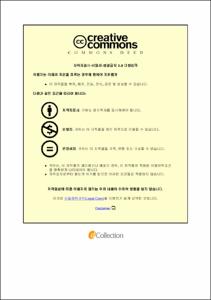경상북도 수산식품 가공기업 지원제도 개선방안에 관한 연구
- Abstract
- Abstract
The purpose of this study is to reveal the structural problems and limitations of the support system for seafood processing companies in Gyeongsangbuk-do through analysis of the corporate capabilities of seafood processing companies, analysis of the relative importance of the support system for seafood processing companies, and analysis of hindering factors in the support system. It was intended to derive an improvement plan for the support system optimized for seafood processing companies.
First, in the corporate capabilities analysis, the relative strengths and weaknesses capabilities were analyzed to find the intensive investment area for the future of Gyeongsangbuk-do seafood industry. In this analysis, it was found that most of the seafood processing companies recognized that they have low competency in all the capabilities. By capabilities, manufacturing/processing(3.02), raw material secure (3.02), network(2.86), marketing(2.60), human resources(2.36), export(2.33), and R&D(2.23) were shown in order. In particular, R&D was found to be the weakest capabilities. Currently, seafood processing companies have an unsystematic R&D structure in which company representatives and a small number of employees come up with ideas and approach, so their R&D capabilities are considered particularly weak.
In the IPA analysis, it was found that the priority improvement capabilities include automation of processing facilitiesㆍequipment, promotion, sufficient processing and manufacturing manpower and ability to secure new manpower. These factors were analyzed as competencies that require priority improvement.
Second, in the analysis of the importance of the support system for seafood processing companies, it was tried to derive a relatively important support system through a AHP analysis(subdivided hierarchical model based on 4 upper classes and 17 lower classes) by surveying public officials, experts, and seafood processing companies.
As a results of analysis, facility and equipment support(0.358) was found to be the most important, followed by technology(R&D) support(0.315), marketing support(0.257), and management support(0.070). In particular, within facility and equipment support, the importance of support for facility funds was found to be high. This shows that facility funds that can purchase processing equipment for seafood processing companies play an important role in competency.
On the other hand, in the AHP analysis results by group, it was found that there were gaps among the major groups(public offcials, experts and seafood processing companies). seafood processing companies showed a high priority in facilities and equipment support(0.589), while public officials and experts showed that technical(R&D) support was important. It was analyzed that the weight of technology(R&D) support for seafood processing companies was only 0.078. In particular, the public officials group and the expert group were shown to be the first priority support for new product development and technology transfer(0.169 and 0.182, respectively), but the seafood processing company only ranked 10th and weighted 0.036. It was found that there was a large discrepancy in perception.
Third, in the analysis of the hindering factors that affect the support system for seafood processing companies, we tried to explore the factors hindering the support system through individual in-depth interviews with key stakeholders (public officials, experts, companies) related to the support system. In this analysis, it was found that various impeding factors be occurred in the policy process related to the support system for seafood processing companies. The main obstacles are lack of understanding corporate policy demands, lack of communication channels between stakeholders, lack of trust, the difference of perspectives(short-term, long-term) between public officals and companies, quantitative performance-oriented support system, the lack of professionalism and continuity due to frequent personnel changes of the person in charge, and difficulties in responding to supporting project documents and manpower.
The implications of this study are establishing communication channels for stakeholders in the Gyeongsangbuk-do seafood industry, the need and importance for facilityㆍequipment funding and automation support, realistic R&D for new products, government-centered research support for R&D capabilities and establishment of seafood marketing group specializing in the distribution of Gyeongsangbuk-do seafood products.
Keywords : seafood processing companies, supporting policy, corporate capabilities analysis, relative importance of support system, constraints factors
- Issued Date
- 2022
- Awarded Date
- 2022. 2
- Type
- Dissertation
- Publisher
- 부경대학교
- Affiliation
- 부경대학교 대학원
- Department
- 대학원 해양수산경영학과
- Advisor
- 표희동
- Table Of Contents
- Ⅰ. 서 론 1
1. 연구배경 및 목적 1
2. 연구의 범위 및 방법 3
3. 연구의 내용과 체계 6
Ⅱ. 경상북도 수산식품가공산업 구조와 현황 8
1. 수산식품산업의 개념과 범위 8
2. 국내 수산식품 산업현황 9
3. 경상북도 수산식품 산업현황 16
Ⅲ. 이론적 배경 및 선행연구 50
1. 계층구조 분석(Analytic Hierarchy Process) 50
2. 요인분석(Factor Analysis) 56
3. IPA 분석 62
4. 선행연구 65
Ⅳ. 연구 설계 81
1. 연구 범위 및 대상 81
2. 연구 문제 82
3. 조사방법 및 개요 83
Ⅴ. 연구 결과 90
1. 경북 수산식품 가공기업 기업역량 분석 90
2. 경북 수산식품 가공기업 지원제도의 상대적 중요도 분석 123
3. 경북 수산식품 가공기업 지원제도 저해요인 분석 137
Ⅵ. 결 론 151
1. 연구 결과 151
2. 연구 시사점 및 한계점 156
- Degree
- Doctor
- Files in This Item:
-
-
Download
 경상북도 수산식품 가공기업 지원제도 개선방안에 관한 연구.pdf
기타 데이터 / 3.96 MB / Adobe PDF
경상북도 수산식품 가공기업 지원제도 개선방안에 관한 연구.pdf
기타 데이터 / 3.96 MB / Adobe PDF
-
Items in Repository are protected by copyright, with all rights reserved, unless otherwise indicated.